The surge of digital currencies over the past decade has revolutionised the financial landscape, creating vast opportunities for traders and investors. As cryptocurrencies like Bitcoin, Ethereum, and countless others gain traction, the need for reliable and effective trading platforms becomes paramount. These platforms are not just gateways to participate in digital currency exchanges but are also critical in defining the ease and security with which transactions can be executed. Choosing the right platform can influence your trading efficiency and profitability significantly. This article will guide you through understanding what a crypto trading platform is, important factors to consider when choosing one, and review some of the top platforms available today.
What is a Crypto Trading Platform?
A crypto trading platform is an online portal where you can buy, sell, and manage your cryptocurrency investments. The core functionality of these platforms revolves around facilitating trades between participants in a secure and efficient environment. Key features include market charts, order books, trade history, and tools for technical analysis. These platforms serve both novice and experienced traders, offering a range of instruments and resources to enhance trading decisions.
Factors to Consider When Choosing a Crypto Trading Platform
When selecting a crypto trading platform, several critical factors must be considered to ensure your choice aligns with your trading needs and security requirements:
- Security measures: The platform should employ robust security protocols such as two-factor authentication (2FA), encryption, and cold storage of funds.
- Fee structure: Transparent and competitive fees are essential for cost-effective trading.
- User interface and user experience: A clean, intuitive interface makes navigating trades easier, particularly for new traders.
- Supported cryptocurrencies: Look for platforms offering a wide range of digital currencies and tokens.
- Customer support: Efficient customer service is crucial for resolving issues quickly and smoothly.
The Rise of Cryptocurrency Trading
Cryptocurrency trading has escalated from a niche pursuit to a major financial activity. The inception of Bitcoin in 2009 marked the beginning of decentralized blockchain-based digital currencies, disrupting traditional financial systems and institutions. As digital currencies proliferated, so did the platforms facilitating their trade, each vying to offer more features, better security, and greater ease of use.
Advanced Trading Features Explained
For those looking to expand beyond basic trading, platforms offer advanced features such as:
- Margin trading: Allows traders to borrow money against their current funds to trade cryptocurrency “on margin” on the exchange.
- Futures and derivatives: Instruments that let you speculate on the future prices of cryptocurrencies.
- Decentralized exchanges: Platforms that facilitate peer-to-peer trading without central authority, enhancing privacy and reducing risk of server downtime.
Best Crypto Trading Platforms for 2024!
Let’s delve into some of the top platforms in the crypto trading world, each known for specific strengths and functionalities:
1] Binance
Binance, founded in 2017, rapidly ascended to prominence in the cryptocurrency exchange market due to its broad array of offerings and aggressive growth strategies. Serving a global audience, Binance offers an extensive range of trading tools, making it appealing both to newcomers to cryptocurrency and to seasoned traders.
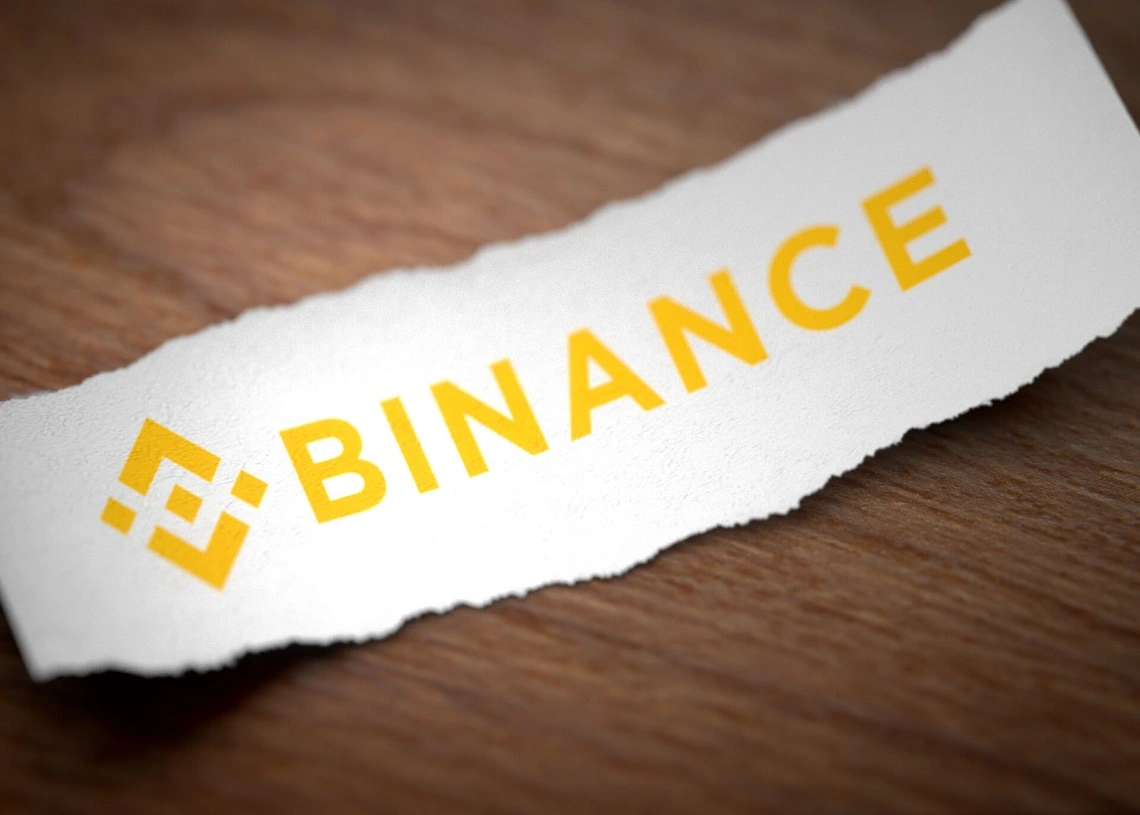
The platform supports a multitude of cryptocurrencies, providing users with a plethora of trading options across spot, margin, futures, and decentralized exchange (DEX) environments. Additionally, Binance is known for its high-speed trading engine, which facilitates a robust trading experience even during peak times when user activity surges.
As cryptocurrencies continue to gain mainstream adoption, Binance strives to remain at the forefront by innovating new services and enhancing its platform’s security and user interface.
Features
- Wide Range of Cryptocurrencies: Binance supports over 200 cryptocurrencies for trading.
- Multiple Trading Options: Offers spot, margin, futures, and options trading.
- User-Friendly Interface: Catering to both beginners and experts with customizable trading views.
- Advanced Trading Tools: Includes comprehensive charting options, trading bots, and API access.
- Binance Academy: Provides educational resources for both novice and experienced traders.
- Binance Chain and Binance Smart Chain: Supports decentralized app development and trading.
- Staking and Savings: Users can earn rewards by staking or participating in savings accounts.
Pros:
- High Liquidity: Ensures optimal prices and minimal slippage for large orders.
- Low Fees: Competitive trading fees that decrease with higher volume and BNB token usage.
- Robust Security: Offers state-of-the-art security features, including two-factor authentication (2FA) and cold storage for funds.
- Global Reach: Available to users worldwide, providing a diverse trading environment.
Cons:
- Complex for Beginners: The sheer number of tools and options can overwhelm new users.
- Regulatory Scrutiny: Has faced issues with various regulatory bodies, leading to uncertainty in certain regions.
- Customer Support Issues: Some users report slow response times during periods of high demand.
Binance continues to push the envelope in the crypto exchange sphere, making it a go-to platform for traders looking for variety and robust trading capabilities. Its commitment to security, innovation, and user education makes it a standout in the crowded field of cryptocurrency exchanges.
2] Coinbase
Coinbase, established in 2012, is one of the most user-friendly cryptocurrency exchanges, making it an ideal gateway for newcomers to the world of digital currencies. As a platform regulated in the United States, it adheres to stringent compliance and security measures, fostering a safe trading environment for its users.

Coinbase offers a straightforward purchase and trading process, supporting popular cryptocurrencies like Bitcoin, Ethereum, and Litecoin. The platform extends beyond basic trading with features like Coinbase Wallet for secure crypto storage and Coinbase Pro for advanced trading capabilities, including detailed charts and lower transaction fees.
Features
- Ease of Use: Intuitive interface ideal for beginners.
- Security: Strong security measures including insurance on deposits.
- Variety of Services: Includes Coinbase Pro, Coinbase Wallet, and a platform for institutional traders.
- Educational Resources: Offers learning resources and cryptocurrency rewards through Coinbase Earn.
Pros:
- User-Friendly Interface: Coinbase is renowned for its simplicity and ease of use.
- High Security Standards: With top-tier security practices including insurance for digital assets stored on its servers.
- Educational Resources: The platform provides extensive educational materials through Coinbase Earn.
Cons:
- Higher Fees: Compared to other platforms, Coinbase’s fee structure can be higher, especially for small transactions.
- Limited Advanced Features: While excellent for beginners, seasoned traders may find Coinbase’s trading capabilities.
Coinbase’s commitment to security, simplicity, and regulatory compliance makes it a trustworthy platform for new and casual crypto investors alike.
3] Kraken
Kraken stands out as a reliable and robust cryptocurrency exchange with a strong focus on security and a comprehensive suite of trading features suited for both novice and experienced traders. Established in 2011, Kraken has built a reputation for being a secure platform that prioritizes the safety of its users’ funds.
It supports a wide range of cryptocurrencies and fiat currencies, providing traders with the opportunity to engage in direct fiat-to-crypto transactions. Kraken’s platform includes advanced trading options such as futures and margin trading, catering to traders looking for leverage and more sophisticated trading strategies.
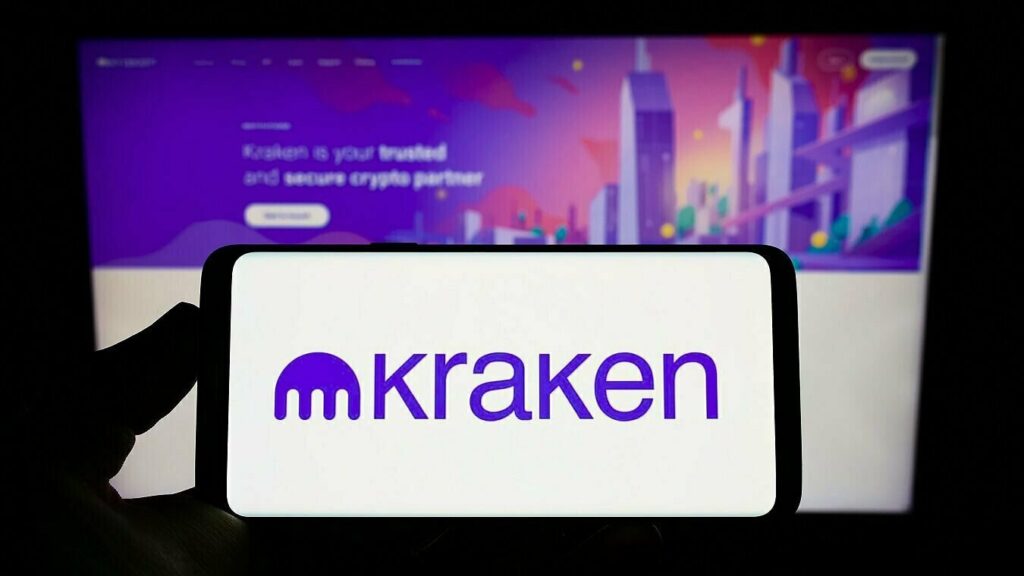
Additionally, Kraken emphasizes transparency and compliance, operating in numerous countries under strict regulatory oversight.
Features
- Wide Range of Supported Currencies: Offers extensive fiat and cryptocurrency pairs.
- Advanced Trading Options: Includes futures, margin trading, and stop orders.
- Security: High-level security measures including two-factor authentication and cold storage.
Pros:
- Exceptional Security: Known for robust security measures to protect user assets.
- Low Fees: Competitive pricing structure that benefits both high volume and retail traders.
- Regulatory Compliance: Complies with legal regulations, offering a secure trading environment.
Cons:
- Complex Interface: The platform’s complexity can be daunting for beginners.
- Customer Service: Some users report slow response times during peak periods, impacting user experience during critical trading moments.
Kraken’s blend of security, comprehensive trading tools, and regulatory compliance makes it a favored choice among serious cryptocurrency traders. However, newcomers might find the learning curve a bit steep.
4] Bitfinex
Bitfinex, launched in 2012, is a prominent cryptocurrency exchange known for catering to professional traders with its advanced trading features and deep liquidity. It offers a wide array of trading options, including spot and margin trading with up to 10x leverage, derivatives, and over-the-counter (OTC) services, making it a versatile platform for serious traders.
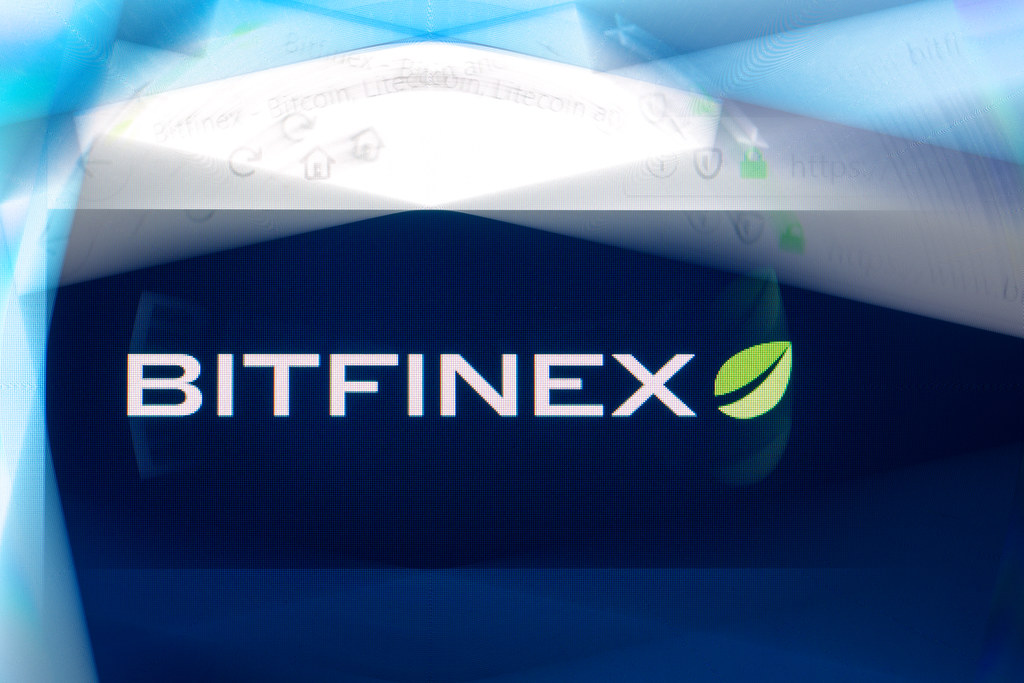
Bitfinex supports a comprehensive range of cryptocurrencies and fiat currencies, providing users with the flexibility to trade various pairs. The platform is designed with sophisticated trading tools, including customizable interfaces, detailed charting capabilities, and API support for automated trading strategies.
Features
- Extensive Trading Options: Spot, margin trading, derivatives, and OTC trading.
- High Liquidity: Ensures tight spreads and better price execution for large volume trades.
- Advanced Trading Tools: Customizable user interface, advanced charting software, and API access.
Pros:
- Advanced Features: Suitable for professional traders looking for complex trading options and high leverage.
- High Liquidity: Offers deep liquidity, facilitating large trades without significant price impact.
- Robust Security: Utilizes cold storage for user funds, two-factor authentication, and PGP email encryption.
Cons:
- Complex Interface: The platform’s complexity can be overwhelming for beginners, making it less accessible to novice traders.
- Past Security Incidents: Despite strong current security measures, Bitfinex has experienced major hacks in the past, which may concern potential users.
Bitfinex remains a top choice for experienced traders due to its advanced features and high liquidity, though its interface and past security issues may pose challenges for new entrants to the crypto trading scene.
5] Bittrex
Bittrex is a US-based cryptocurrency exchange renowned for its commitment to providing a secure and stable trading platform. Founded in 2014 by cybersecurity engineers, it features a user-friendly interface tailored for both novice and experienced traders. Bittrex offers a broad range of cryptocurrencies, making it one of the go-to platforms for diversifying crypto portfolios.
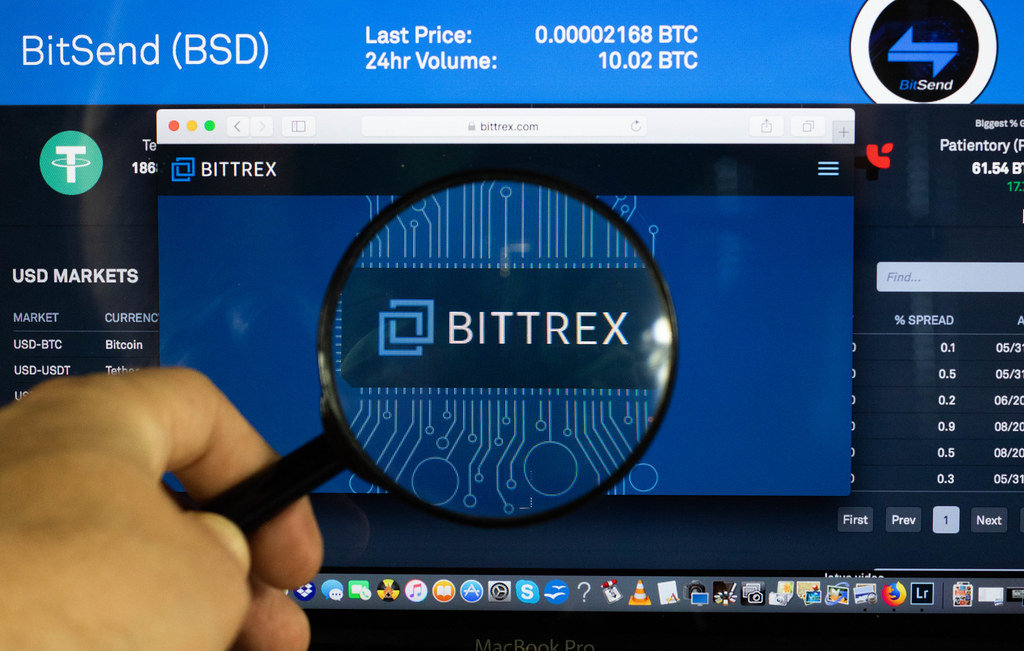
It supports both fiat and cryptocurrency trading pairs and prides itself on its robust security measures, which include two-factor authentication and a multi-stage wallet strategy to ensure funds are kept in secure, cold storage environments.
Features
- Extensive Cryptocurrency Selection: Offers trading for hundreds of cryptocurrencies.
- Strong Security Measures: Utilizes an elastic, multi-stage wallet strategy and two-factor authentication.
- Fiat Trading: Supports USD trading, deposits, and withdrawals.
Pros:
- Security Focus: Known for stringent security protocols which have kept it free of major hacks.
- Regulatory Compliance: Fully compliant with US regulations, adding a layer of trust and security.
- Clean Interface: Offers an intuitive and easy-to-navigate platform suitable for both beginners and experienced traders.
Cons:
- Customer Support Issues: Some users report delays and difficulties with customer support responses.
- Limited Advanced Features: Lacks some of the more sophisticated trading tools offered by competitors, which may deter more advanced traders.
Bittrex’s combination of security, regulatory compliance, and a wide range of supported cryptocurrencies makes it a reliable choice for traders looking to operate within a secure environment. However, the platform’s customer support and range of advanced features might not meet the needs of all users, especially those seeking complex trading tools.
6] eToro
eToro stands out in the crowded field of cryptocurrency exchanges by offering a unique combination of social trading features alongside traditional trading mechanisms. Founded in 2007, it began as a general trading platform but has since expanded to include cryptocurrencies among its many tradable assets which also include stocks, commodities, and forex.
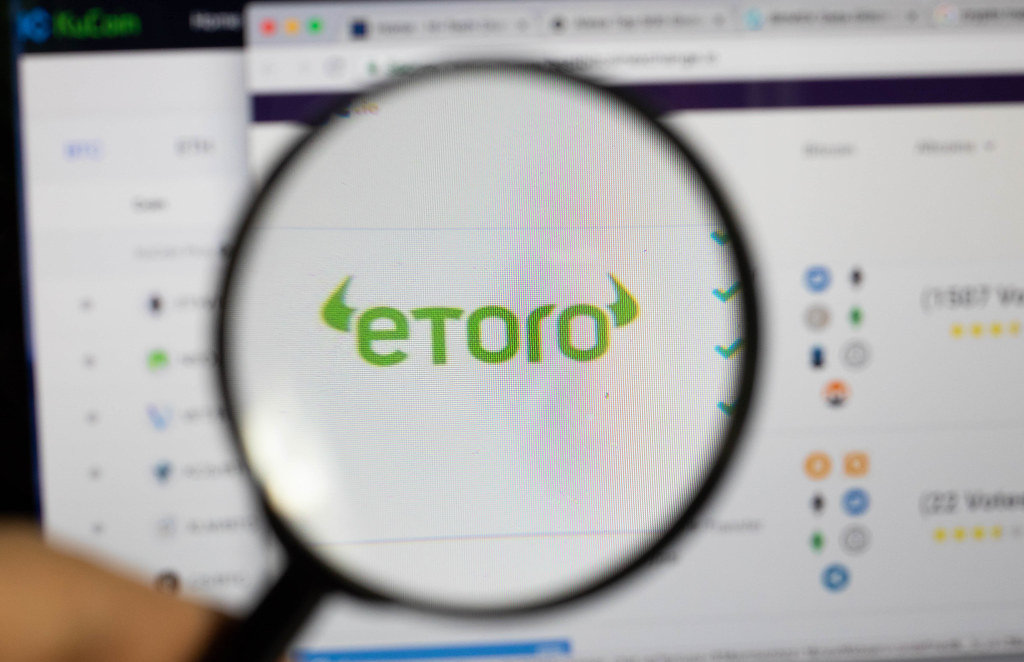
The platform is especially well-known for its social trading features, which allow users to copy the trades of successful investors, fostering a collaborative environment. eToro operates globally and is regulated in several jurisdictions, enhancing its reliability and security for users.
Features
- Social Trading: Allows users to copy trades from successful traders.
- Wide Range of Assets: Offers trading in cryptocurrencies, stocks, forex, and more.
- User-Friendly Interface: Designed to be accessible for beginners and intermediate traders.
Pros:
- Social Trading Capabilities: Enables less experienced traders to benefit from the strategies of more seasoned traders.
- Diverse Trading Options: Supports a broad array of assets, making it ideal for traders interested in portfolio diversification.
- Regulatory Compliance: Regulated by multiple financial authorities, providing a trustworthy trading environment.
Cons:
- Withdrawal Fees and Minimums: High withdrawal fees and minimum amounts can be a deterrent for small-scale traders.
- Limited Cryptocurrency Features: While it offers a variety of assets, its features specific to cryptocurrency trading are not as developed as those on dedicated crypto platforms.
eToro’s innovative approach to social trading and its wide asset range make it an attractive option for those new to trading or looking to leverage the expertise of other traders. However, the platform’s fee structure and relatively basic crypto-specific tools may not appeal to more dedicated cryptocurrency traders.
7] Huobi
Huobi, established in 2013 in China and now headquartered in Seychelles, is a leading global cryptocurrency exchange known for its expansive selection of trading options and assets. The platform offers trading in over 300 cryptocurrencies and provides a wide array of services including spot trading, futures, staking, and a dedicated token launch platform.

Huobi is particularly noted for its robust liquidity, which facilitates efficient trade execution even for large volume trades. It caters to a diverse user base, ranging from beginners to professional traders, and provides a mobile app for trading on the go.
Features
- Wide Range of Cryptocurrencies: Offers trading in over 300 cryptocurrencies.
- Diverse Trading Options: Includes spot, margin, futures, and derivatives trading.
- Advanced Security Features: Employs industry-standard security protocols including an insurance fund to protect user assets.
Pros:
- High Liquidity: Ensures easy entry and exit from positions, even at large volumes.
- Comprehensive Trading Tools: Provides advanced trading features suitable for professional traders.
- User Support Services: Offers 24/7 customer support and a comprehensive help center.
Cons:
- Complex Interface: May be overwhelming for beginners due to the complexity of options and tools.
- Regulatory Challenges: Faces regulatory scrutiny in various countries, which could affect its accessibility and service offerings.
Huobi’s extensive product offerings and strong market presence make it a preferred choice for traders looking for variety and robust trading capabilities. However, the platform’s complex interface and ongoing regulatory challenges might pose difficulties for new traders and those in restricted regions.
8] KuCoin
KuCoin, established in 2017, has rapidly developed a reputation as a dynamic and user-friendly cryptocurrency exchange, earning the nickname “The People’s Exchange.” It offers a vast array of cryptocurrencies, boasting over 400 coins and numerous trading pairs. KuCoin is known for its inclusivity, providing services that cater to both novice traders and seasoned investors.
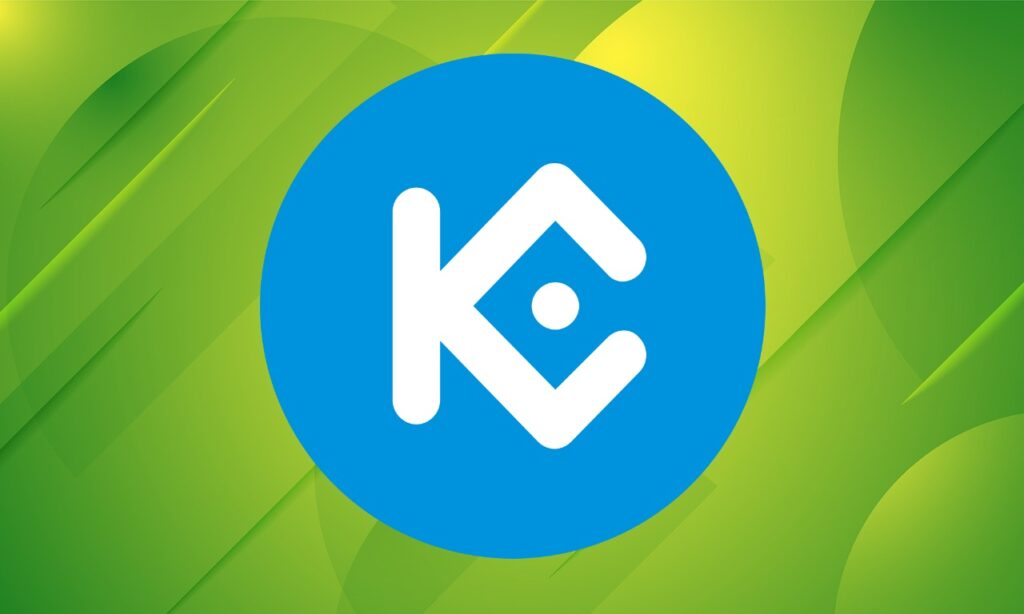
The platform includes features such as futures trading, margin trading, staking, and a built-in trading bot, which helps automate and optimize trading strategies. Furthermore, KuCoin supports numerous fiat currencies for deposits and withdrawals, enhancing its accessibility to a global audience.
Features
- Extensive Cryptocurrency Selection: Hosts a wide array of over 400 cryptocurrencies.
- Advanced Trading Tools: Includes futures, margin trading, and a trading bot.
- User-Friendly Interface: Designed to accommodate both new and experienced traders.
Pros:
- Low Fees: Offers competitive trading fees and discounts for holders of its native KCS token.
- Robust Security: Features multi-layer and multi-cluster system architecture for enhanced security.
- Innovative Services: Provides lending, staking, and its own initial exchange offerings (IEOs) platform.
Cons:
- Customer Support: Some users report delays and unresponsive customer service during peak times.
- Regulatory Uncertainty: As with many crypto exchanges, ongoing changes in global regulations pose challenges for users in certain jurisdictions.
KuCoin’s blend of advanced features, competitive fees, and a wide selection of cryptocurrencies makes it a popular choice among traders globally. However, potential users should be aware of its customer service and regulatory status, which could impact their trading experience.
9] Gemini
Founded in 2014 by Cameron and Tyler Winklevoss, Gemini is a New York-based cryptocurrency exchange known for its strong emphasis on compliance and security. Gemini operates within a fully regulated framework, ensuring a high level of security and operational standards that are compliant with U.S. law, making it a trustworthy platform for cryptocurrency trading.
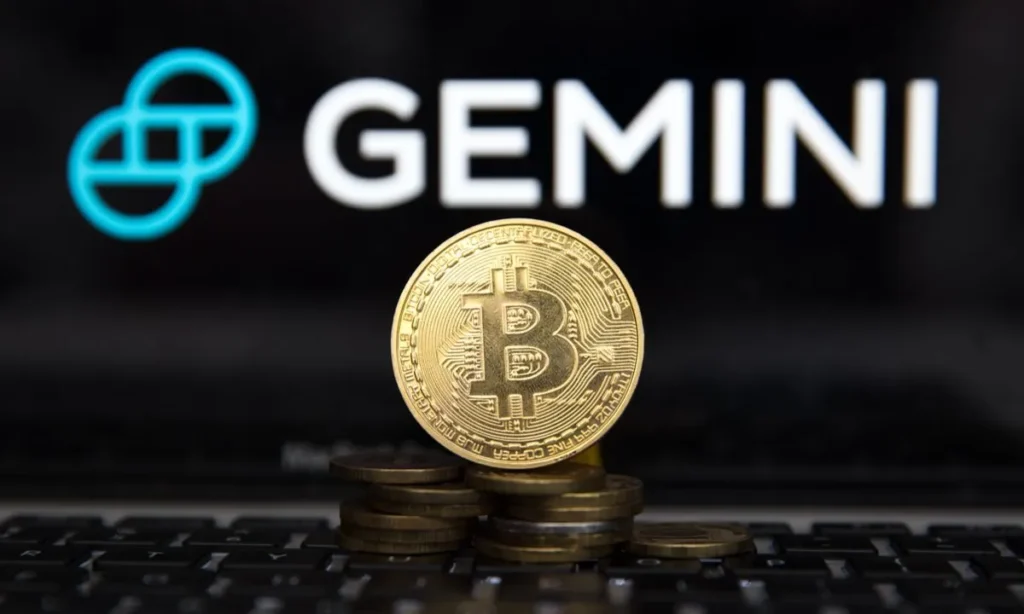
It supports a wide range of cryptocurrencies and offers a clean, user-friendly interface that appeals to both novice and experienced traders. Beyond basic trading, Gemini provides unique features like Gemini Earn, where users can earn interest on their cryptocurrencies, and Gemini Pay, a service allowing users to spend crypto at various retailers.
Features
- Regulatory Compliance: Fully regulated by the New York State Department of Financial Services (NYSDFS).
- Security Measures: Offers top-tier security protocols including cold storage and multi-factor authentication.
- User-Friendly Services: Includes Gemini Earn for earning interest and Gemini Pay for spending crypto.
Pros:
- High Security and Compliance: Provides peace of mind with strong security measures and adherence to regulatory standards.
- Versatile Services: Offers trading, staking, and spending options, enhancing the utility of crypto assets.
- User-Friendly Interface: Designed to be accessible to beginners while still offering advanced features for experienced traders.
Cons:
- Higher Fees: Compared to some competitors, Gemini’s fee structure can be higher, particularly for small trades.
- Limited Selection of Altcoins: While it supports the major cryptocurrencies, it has a less diverse range of altcoins compared to larger exchanges.
Gemini stands out for its regulatory compliance and robust security, making it a safe choice for those particularly concerned with the legitimacy and security of their crypto transactions. However, the potentially higher costs and limited altcoin options may deter some users.
10] OKEx
OKEx, established in 2014, is a Malta-based global cryptocurrency exchange that offers a comprehensive suite of trading services for cryptocurrencies. Known for its versatility, OKEx provides a wide array of trading options including spot and derivatives trading, with futures, options, and perpetual swaps available.
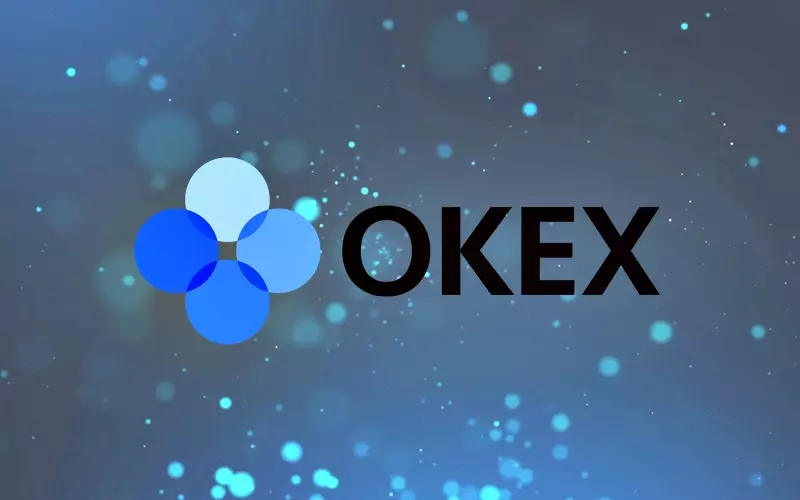
The platform supports a diverse range of cryptocurrencies, offering more than 400 trading pairs. OKEx also features a user-friendly interface with mobile app support, catering to traders who prefer managing their investments on the go. Additionally, the platform includes advanced financial services such as a DeFi hub, a mining pool, and wallet services, making it a well-rounded choice for active traders and long-term investors alike.
Features
- Extensive Trading Options: Spot, futures, options, and perpetual swaps.
- Financial Services: Includes a DeFi hub, mining pool, and wallet services.
- High Liquidity: Maintains high liquidity for efficient order execution.
Pros:
- Comprehensive Trading Products: Provides a broad range of trading products for diversified trading strategies.
- Advanced Technology: Offers a powerful trading engine and mobile app for convenient and fast trading.
- Robust Security Measures: Utilizes industry-leading security practices to safeguard user assets.
Cons:
- Regulatory Challenges: Has faced challenges with regulatory compliance, affecting its accessibility in certain jurisdictions.
- Complex Platform: The vast array of features and trading options can be overwhelming for beginners.
OKEx’s diverse offerings and strong technological infrastructure make it a powerhouse in the crypto trading industry. However, its complexity and regulatory hurdles might pose challenges for less experienced traders and those in regions with strict crypto regulations.
Security Protocols for Safe Trading
To safely trade cryptocurrencies, adhere to the following best practices:
- Use platforms that prioritize security features.
- Enable 2FA and use strong, unique passwords.
- Be wary of phishing attacks and only log in to official sites.
Understanding Fees and Costs
Trading fees can significantly impact your profitability, especially if you trade frequently. Most platforms charge a percentage of each trade, while others might have different structures like flat fees. Comparing these fees across platforms can help you minimize costs and maximize returns.
Customer Support and Service
Effective customer support can be crucial, especially in a fast-paced trading environment. Quick access to support through multiple channels such as live chat, email, and phone can significantly enhance the trading experience.
Conclusion
Choosing the right crypto trading platform is a pivotal decision for any digital currency investor. By considering the various factors outlined and reviewing the top platforms, traders can find a platform that best suits their needs. Remember, the ideal platform combines usability, cost efficiency, robust security, and responsive customer service.
FAQs?
What is the safest crypto trading platform?
The safest platforms are those with strong security measures like Binance and Coinbase.
How do I start trading cryptocurrencies?
Begin by choosing a reputable trading platform, verifying your identity, and making a deposit.
What are the hidden costs in crypto trading?
Look out for withdrawal fees, transaction fees, and any other miscellaneous charges.
Can I trade cryptocurrencies on mobile platforms?
Yes, most major platforms have apps that allow mobile trading.
How do I choose between centralized and decentralized platforms?
Consider factors like security, liquidity, and ease of use. Decentralized platforms offer more privacy but can be less intuitive.
What should I do if my trading account is compromised?
Immediately contact customer support, change your passwords, and enable 2FA.
How important is liquidity in a crypto trading platform?
High liquidity ensures that trades can be executed quickly and at predictable prices.





